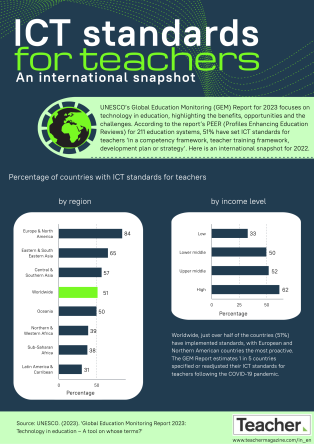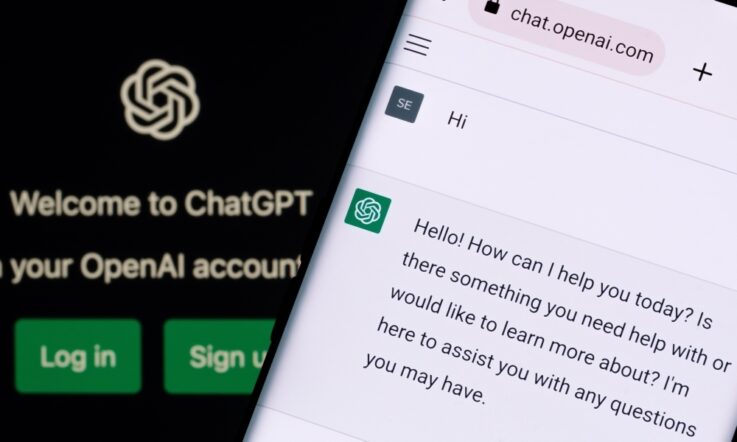Teachers are increasingly using computers, mobile phones, tablets, social media, and other technologies to support student learning. The Technological Pedagogical Content Knowledge (TPACK) framework helps teachers to integrate technology into their practice. However, they also need professional development to effectively employ technology in the classroom.
Professor Suresh C Joshi is Executive Director, Centre for Online Education, University of Chandigarh. In his long career of more than 28 years, Dr Joshi has taught in schools and collaborated with national and international partners on research projects, and is a Fullbright distinguished awardee in its Teaching Program.
TPACK across the globe
His recent study, TPACK and Teachers’ Self-Efficacy: A Systematic Review (Joshi, 2023), highlighted how several countries have made significant strides in integrating technology, pedagogy, and content knowledge to foster innovative teaching approaches.
‘Their education systems prioritise professional development, resource allocation, and policies supporting TPACK integration. However, the extent of TPACK utilisation varies, influenced by diverse educational contexts, technological infrastructure, and teacher training initiatives,’ Dr Joshi tells Teacher.
He says the US takes a lead in TPACK integration by using technology as a pedagogical tool across various subjects. Other countries such as Finland, Singapore, and parts of the Middle East, are gradually adopting the framework to enhance teaching practices for a better student learning experience.
While talking about TPACK integration in India, Dr Joshi said that the use of TPACK varies across India. Hindrances to widespread adoption include a lack of awareness and training on TPACK among educators, the unavailability of technological tools, and a lack of institutional support and curriculum alignment. However, since the educational landscape is constantly evolving, more and more teachers could have become familiar with TPACK and its use in the classroom.
How TPACK helps teachers
Dr Joshi points out the advantages of having TPACK knowledge. TPACK helps teachers to:
- create dynamic, engaging, and effective learning experiences for students in a technologically driven world
- adapt and utilise emerging digital tools for fostering 21st-century skills vital for students’ success in the future
- design and implement innovative teaching strategies tailored to diverse learning needs
- implement a student-centred learning approach for promoting active participation and critical thinking
- develop a positive attitude towards technology, reduce apprehensions, and leverage its full potential
- guide students in navigating and utilising technology responsibly and ethically
- confidently navigate the complex intersection of technology, pedagogy, and subject matter expertise, ensuring a more effective and impactful student learning experience.
Findings from the review of studies on TPACK
In his study, Dr Joshi asks a question of pragmatic importance: What is the impact of tech-based professional development interventions on teachers' TPACK self-efficacy?
‘Studies indicate that effective professional development programs focusing on TPACK integration significantly enhance teachers' technological, pedagogical, content knowledge. Ongoing and sustained training, coupled with hands-on experiences, positively impact educators' confidence and proficiency in employing technology within their teaching practices.
‘Collaborative learning environments, where teachers exchange ideas and strategies for TPACK implementation, foster a supportive community conducive to skill development. Additionally, mentorship programs and coaching initiatives play pivotal roles in assisting teachers in applying TPACK effectively in diverse classroom settings.’
Studies reviewed show that contextualised learning opportunities tailored to teachers' subject areas, grade levels, and technological comfort levels are important. Such targeted professional development leads to greater adaptability and innovation among teachers for integrating technology to enhance student engagement and learning.
‘Personalised, continuous, and contextually relevant professional learning experiences significantly enhance teachers' abilities to utilise TPACK effectively in their teaching practice.’
The evidence from his study will support the development of teacher professional development activities to catalyse India’s growth in the use of educational technologies.
‘The future of integrating technology in Indian classrooms is promising, marked by continued advancements and increased accessibility. Efforts to bridge the digital divide among rural and urban areas will likely continue, aiming for equitable access to technology for all students.
‘Moreover, emerging technologies such as artificial intelligence (AI), virtual reality (VR), and augmented reality (AR) are expected to play significant roles in transforming the learning experience. These innovations can offer immersive and personalised learning opportunities, catering to diverse student needs and fostering critical thinking and problem-solving skills.’
References
Joshi, S. C. (2023). TPACK and Teachers’ Self-Efficacy: A Systematic Review. Canadian Journal of Learning and Technology, 49(2), 1-23. https://doi.org/10.21432/cjlt28280
As a teacher, have you attended tech-based professional development programs? How have they helped you to enhance the learning environment of students? Discuss with your colleagues how such programs can be improved to better meet your needs.
As a school leader, are you aware of the professional learning needs of your staff when it comes to integrating technology into classroom practice?



